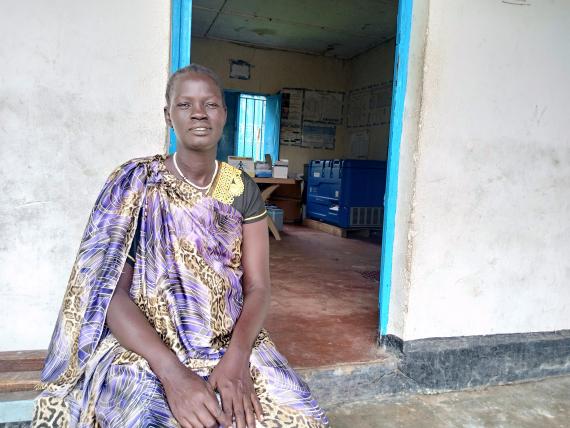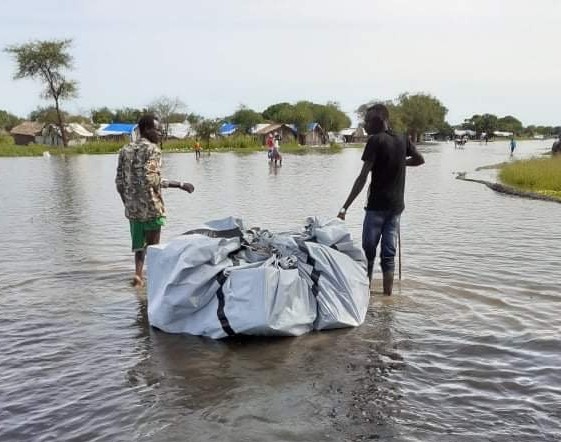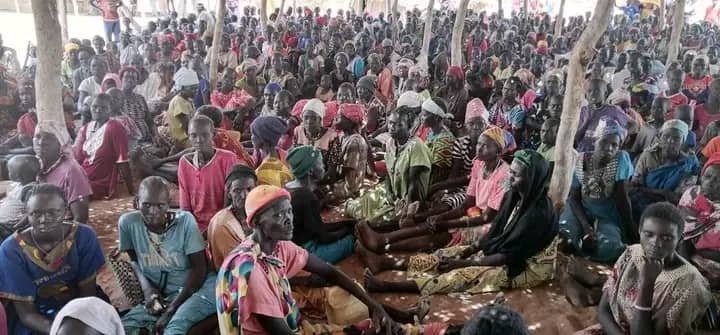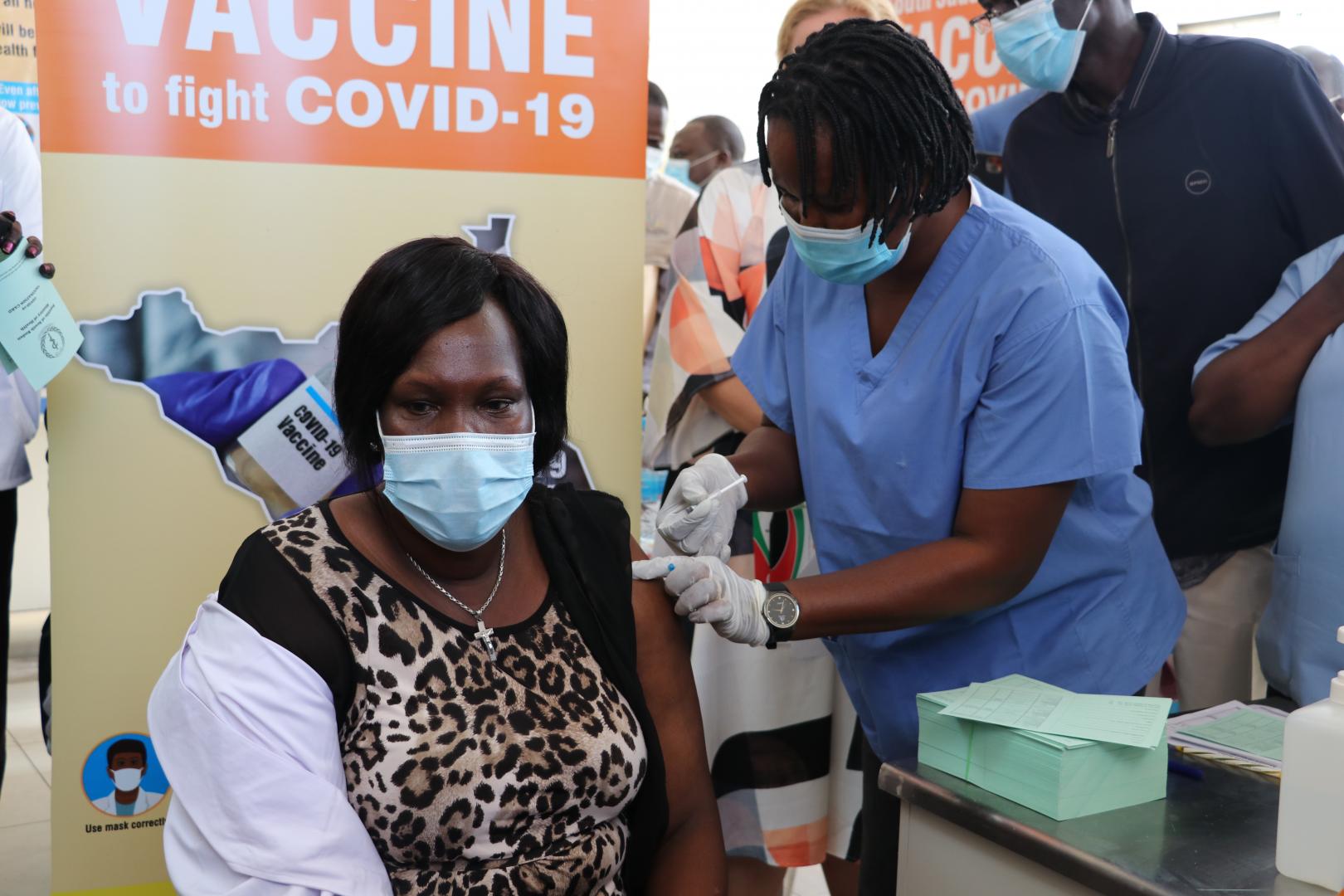
Taming malaria in the marshlands
Unicef South Sudan
In the marshes on the outskirts of Malakal Town in South Sudan’s Upper Nile State, Nyanbol Mijak (28) lives with her five children, withstanding the hardships of a devasting flood that has deluged this part of the country for several months now. One evening her youngest daughter went to bed with a high fever. At night, the daughter was vomiting and convulsing, which caused a lot of distress for the mother.
“I didn’t know how to help her. I was worried,” she says. The following morning, she walked through the mud and the slush to reach a health facility to seek medical services. At the health centre, Nyanbol’s daughter was diagnosed with malaria. Nyanbol knows about the pervasiveness of malaria and how deadly it can be. Just a month earlier, she had seen an 11-year-old boy in her neighbourhood succumbing to the disease.
“The boy had been complaining of headache and fever. Before he was brought to the health facility to receive treatment, he started vomiting and convulsing and soon died,” says Nyanbol. This experience, she says, made her very concerned about her child.
The Assosa Primary Healthcare Centre, where Nyanbol takes her children for treatment, delivers lifesaving medical services to the community, with support from UNICEF.
UNICEF works in partnership with the Ministry of Health and the World Bank to train health workers to provide insecticide-treated bednets and medicines to treat malaria. Additionally, UNICEF supports health workers and community mobilizers to create awareness about the dangers of malaria, and to seek medical care – as the disease can be fatal if left untreated.
At the Assosa health facility, Nyanbol’s daughter was given malaria treatment. “They gave her artesunate injection and she quickly recovered,” Nyanbol says.
Without it, her daughter could have died. Anyang Wien, a clinical officer at the health facility, is proud of the work he does and the assistance he provides to people in need of health care.
“Without the services of this health facility, access to malaria treatment would be very difficult,” Anyang says as he shows us his medical records, indicating a weekly average of 20 malaria cases. Worried he adds “the number of malaria cases is expected to rise at the peak of the rainy season around November.”
To strengthen prevention measures and reduce the cases of malaria in Upper Nile State, mosquito nets are distributed to vulnerable households. The families also receive continuous health education from a network of social mobilizers and volunteers.

Ending his visit to the health facility Unziku Tolbert, health specialist with UNICEF in Upper Nile State, summarizes the importance of an integrated approach to address the health challenges people in the area face: “Curative health care alongside preventive health services like health education sessions conducted at the health facilities and within the households promote healthy living and provide lifesaving support for children and mothers.”



































